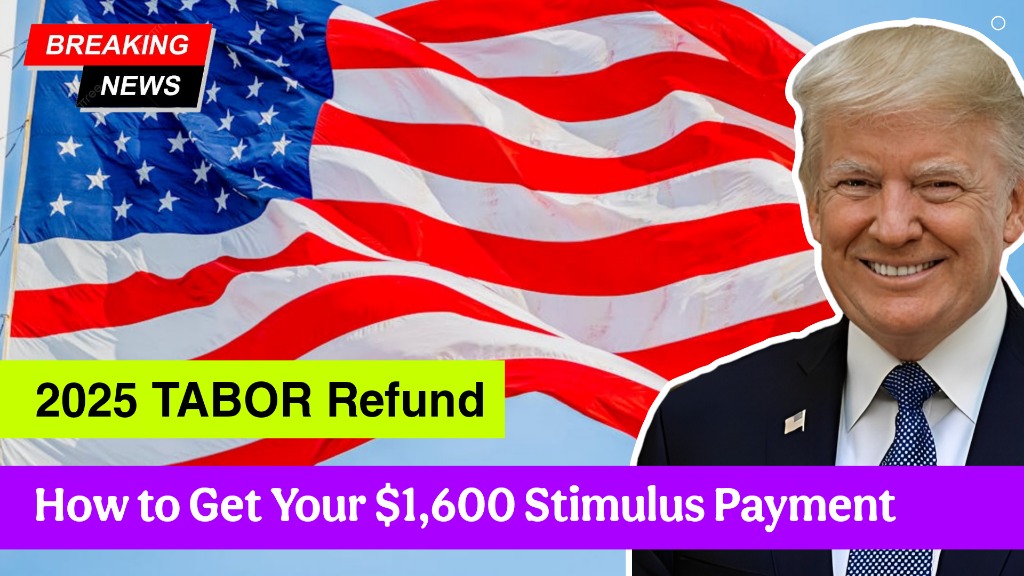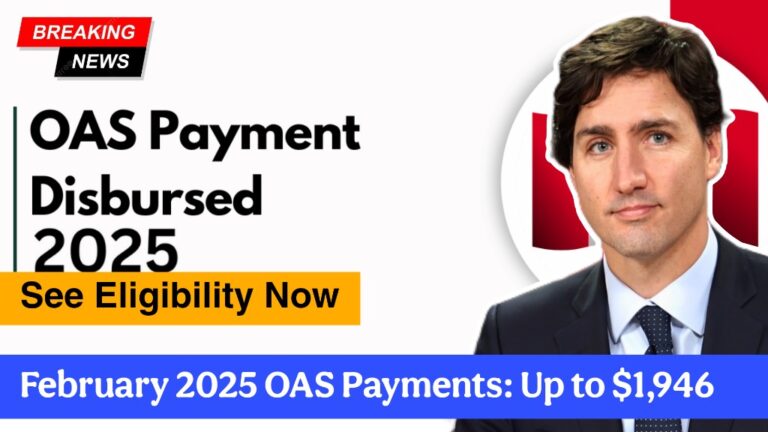TABOR Refund 2025: The Colorado TABOR Refund 2025 is a one-time payment designed to return surplus state revenue to eligible taxpayers under the Taxpayer’s Bill of Rights (TABOR). This initiative offers up to $1,600—with $800 for single filers and $1,600 for married couples filing jointly—providing much-needed financial relief to residents amid rising living costs.
To qualify, applicants must meet specific criteria, including being U.S. citizens, residing in Colorado for at least 183 days in 2023, being 18 years or older, and filing a 2023 state tax return. Applications are submitted online through the Colorado Department of Revenue, with payments expected by mid-2025.
Table of Contents
Key Details About the Colorado TABOR Refund 2025
Below is a summary of the essential details about the TABOR Refund:
| Topic | Details |
|---|---|
| Maximum Refund Amount | $800 (single filers); $1,600 (married couples) |
| Eligibility Criteria | U.S. citizen, Colorado residency for 183+ days in 2023, age 18+, filed 2023 state tax return |
| Residency Requirement | Must live in Colorado for at least 183 days in 2023 |
| Application Method | Online via Colorado Department of Revenue |
| Payment Timeline | Expected by mid-2025 |
| Preparation Tips | Gather proof of residency, ID, and 2023 tax documents |
Also Read: $2,650 OAS/CPP Payments for Seniors in Canada – Check Eligibility
What Is the Colorado TABOR Refund?
The Colorado TABOR Refund 2025 is part of the state’s commitment to returning excess revenue to taxpayers under the Taxpayer’s Bill of Rights (TABOR). TABOR limits how much revenue the state can collect and spend, ensuring that surplus funds are returned to residents when certain thresholds are exceeded. In 2025, eligible taxpayers will receive up to $800 as single filers or $1,600 as married couples filing jointly. These refunds aim to ease financial pressures caused by inflation, higher housing costs, and increased expenses for essentials like groceries and utilities.
This initiative is particularly important because it provides direct financial support to Colorado residents, helping them manage their budgets and invest in their communities. By returning taxpayer dollars, the program reinforces transparency and accountability in government spending.
Who Is Eligible for the TABOR Refund?
To qualify for the TABOR Refund, applicants must meet specific criteria. Below is a step-by-step breakdown of the eligibility requirements:
1. Citizenship
- You must be a U.S. citizen or a legal permanent resident to qualify.
- Non-citizens who meet residency and tax filing requirements may also be eligible.
2. Residency
- You must have lived in Colorado for at least 183 days during the 2023 calendar year.
- Proof of residency, such as utility bills or lease agreements, may be required during the application process.
3. Age Requirement
- You must be at least 18 years old by December 31, 2023.
- Minors are not eligible for the refund.
4. Tax Filing Requirement
- You must have filed a 2023 Colorado state tax return to demonstrate your income and eligibility.
- Filing ensures the state has accurate information to verify your refund amount.
Meeting these criteria ensures you’re eligible to receive the TABOR Refund and its associated benefits.
How to Apply for the TABOR Refund
Applications for the TABOR Refund are submitted online through the Colorado Department of Revenue. Here’s how to apply:
1. Online Application
- Visit the official Colorado Department of Revenue website to access the application portal.
- Complete the online form, providing details about your residency, income, and tax filing status.
2. Required Documentation
- Prepare proof of residency, such as utility bills, lease agreements, or voter registration records.
- Have your 2023 state tax return and identification documents ready to verify your eligibility.
3. When to Apply
- Applications will open in early 2025, with payments expected by mid-2025.
- Apply early to avoid delays and ensure timely processing of your refund.
4. Direct Deposit
- To ensure faster delivery, provide your banking information for direct deposit.
- If direct deposit is unavailable, refunds will be issued via check and mailed to your address.
By following these steps, you can ensure your application is processed smoothly and efficiently.
Tips for Preparing to Apply
To maximize your chances of qualifying and receiving the TABOR Refund, follow these actionable tips:
1. Gather Documentation
- Collect proof of residency, such as utility bills, lease agreements, or voter registration records.
- Ensure your 2023 state tax return is complete and accurate before applying.
2. File Taxes Early
- File your 2023 Colorado state tax return as soon as possible to avoid delays in processing your refund application.
3. Check for Accuracy
- Double-check all information entered in the online application to prevent errors that could delay your refund.
4. Beware of Scams
- Be cautious of fraudulent websites or emails claiming to assist with the TABOR Refund application.
- Only use the official Colorado Department of Revenue website to submit your application.
Taking these steps now can help you avoid complications and ensure you receive your refund on time.
Also Read: $1,700 GIS Payment Boost in 2025 – See If You’re Eligible
Broader Impact on Individuals and Society
The TABOR Refund represents more than just financial assistance—it’s a recognition of the challenges faced by Colorado residents amid rising living costs. Here’s how it makes a broader impact:
1. Easing Financial Strain
- For low- to middle-income families, even modest sums like $800 or $1,600 can help cover essential expenses, reducing stress and improving quality of life.
2. Supporting Local Economies
- When residents spend their refunds locally, it stimulates economic activity, supporting businesses and communities across Colorado.
3. Promoting Fiscal Responsibility
- By returning surplus revenue to taxpayers, the TABOR Refund reinforces the principles of transparency and accountability in government spending.
4. Encouraging Civic Engagement
- The refund highlights the importance of participating in state programs, filing taxes, and staying informed about fiscal policies.




